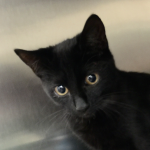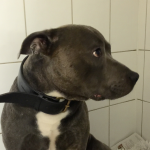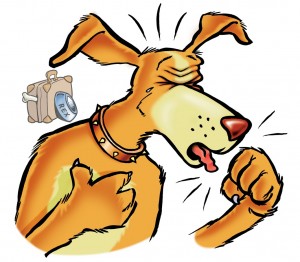News
Archive for January, 2015
Neutering Offer
by on January 30th, 2015
Category: Special Offers, Tags:
Pet of the Month – February 2015
by on January 30th, 2015
Category: Pet of the Month, Tags:
 Poor kitty! Reggie was brought in as a stray, having been involved in a road traffic accident. Although he did not seem to have significant external injuries he began to deteriorate rapidly and internal injuries were suspected. Blood tests, radiology and ultrasound examination revealed a ruptured bladder.
Poor kitty! Reggie was brought in as a stray, having been involved in a road traffic accident. Although he did not seem to have significant external injuries he began to deteriorate rapidly and internal injuries were suspected. Blood tests, radiology and ultrasound examination revealed a ruptured bladder.
When surgery was performed his bladder was found to be badly torn and it was feared that a repair might not be effective. We are delighted to report that despite this his bladder healed quickly and completely and he has now been rehomed with one of our nurses!
Head Tilt in Dogs
by on January 30th, 2015
Category: News, Tags:
 What Does it Mean if My Dog has a Head Tilt?
What Does it Mean if My Dog has a Head Tilt?
- Infections
- Polyps
- Reactions to topical drops or solutions if the ear drum is damaged
- Hits to the head
- (Occasionally) ear tumours
- (Rarely) a genetic abnormality affecting puppies, especially those of the Doberman breed
- Idiopathic vestibular disease
- Tumours
- Trauma
- Inflammation
- Stroke
- Rarely, similar signs can be seen in dogs that are receiving a specific antibiotic called metronidazole. Recovery will often take place within days of stopping this medication.
Pet of the Month – January 2015
by on January 5th, 2015
Category: Pet of the Month, Tags:
 Handsome Doobey is seen here showing his best side as he reflects on the wisdom of eating the contents of his owners bin!
Handsome Doobey is seen here showing his best side as he reflects on the wisdom of eating the contents of his owners bin!
Doobey was violently sick and then went on to have a seizure and developed neurological symptoms, including head bobbing and twitching. This necessitated his admission for intravenous fluids to try and flush the unidentified toxins out of his system, and tranquilising medication to keep him calm. We are delighted to report that he is now back to his former bouncy self!
Dental Offer
by on January 5th, 2015
Category: Special Offers, Tags:
Winter Coughs – Be prepared
by on January 5th, 2015
Category: News, Tags:
We have seen a surprising number of coughing dogs over the last few weeks all caused by a contagious form of infectious tracheobronchitis otherwise know as Kennel Cough – an unfortunate name as you do not need to be in kennels to catch it!
These infectious coughs, very similar to what we can catch, are caused by a strain of doggy flu (parainfluenza) and a bacteria called Bordetella bronchiseptica working together.
This infection can be vaccinated against with a few droplets up a nostril. This vaccination needs boosting annually to keep protection as high as possible.
Kennel cough usually presents as a harsh honking cough, often with the poor dog retching at the end. This is due to coughing with such force that the windpipe collapses trigging the gag reflex. Understandably many people worry that their dog initially is choking with something stuck in their throats.
These germs are extremely contagious, every time a dog coughs it releases thousands of infectious droplets which can survive in the environment and even on our clothes! Infected dogs should be rested and isolated until the cough has gone. This can mean your dog is not allowed to go for a walk for some weeks!
Just like our human flu vaccinations, kennel cough vaccines can never give 100% protection but will often manage to reduce the severity of signs and duration of signs if any new strains emerge.
If your dog is walked in busy parks or is likely to be mixing with other dogs, either in kennels or with a dog walker, we would definitely recommend vaccinating against Kennel Cough. As always if you are at all worried about your dog or not sure of his/her vaccination status then please contact the surgery for advice.




